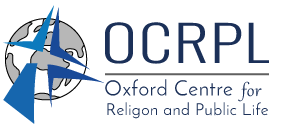Published with permission from the Church of England Newspaper, September 28
FAITH COMMUNITIES have a duty to help provide the civic education that can help forge an inclusive future for South Africa.

That was the message of Dr Mamphela Ramphele, who was addressing a meeting of civic, academic and religious leaders in Cape Town, South Africa on 20 September. Sponsored by the Centre for Constitutional Rights, the Stellenbosch School of Public Leadership and the Konrad Adenaur Foundation, it marked South Africa’s Heritage Day on 24 September.
Dr Ramphele, a former vice chancellor of the University of Cape Town, a leader in the anti-apartheid movement and mother of Steve Biko’s two children, is co-founder and global ambassador for ReimagineSA.
She overviewed the situation as South Africa begins to struggle with the rampant corruption and clear ‘disappointment’ that many have with the expression of freedom under the Zuma presidency.
She emphasized the lack of civic knowledge about the content of the constitution in the general population, citing this as the reason why people continue to vote the African National Congress into power.
Heritage Day was inaugurated in 1995 to celebrate the contribution of the many peoples and cultures of South Africa to the new ‘rainbow nation’.
Dr Ramphele addressed the vexed question of unifying a population that has vastly diverse heritage, language and even educational traditions. She said that the criticisms by a younger generation of the 1994 settlement as a sellout for not settling a socio-economic compact failed to acknowledge that the dream of freedom achieved then was purchased at great cost to stop a civil war.
She argued that the Truth and Reconciliation Commission was never meant to provide healing but was an amnesty for army generals who feared recriminations.
During questions, Archbishop Moses Deng, Archbishop of the internal province of Northern Bhar-El-Gazahl in the Episcopal Church of South Sudan, a participant in the new PhD programme of the Oxford Centre for Religion and Public Life with Stellenbosch University, compared the disappointments in South Africa with the disappointed hopes in South Sudan following their independence in 2011.
“We are going backwards in South Sudan. But if we play victim all the time we are not going to come out of it. The problem lies with the leadership”.
Dr Ramphele responded that the issue of leadership was a reflection that citizens did not understand the rights and power they held in the constitution, and that no one party could claim to have overcome apartheid – people had overcome it themselves.
She also argued that no party in South Africa is untainted by the apartheid past. The sooner that was recognised and people vote from an informed civic base, she said, the sooner people will begin to enjoy the fullness of constitutional democracy written in the Constitution of the Republic.


